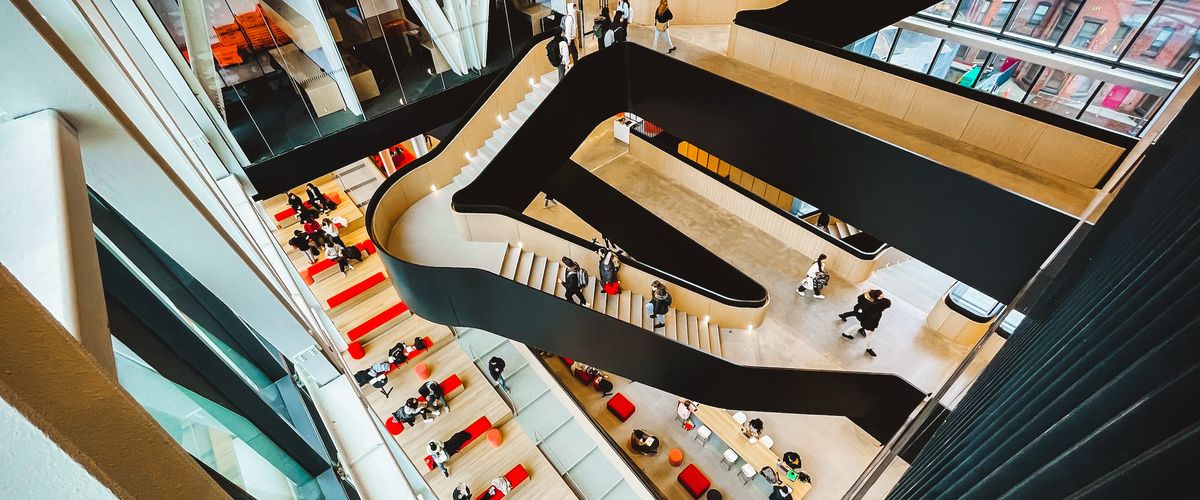With five years of work under the University’s Climate Action Plan, how are we doing? This year’s report reflects on our successes, where we are leading, and where we need to redouble our efforts. Specifically, the Center for Computing & Data Sciences is leading the transition to a carbon-free future, our Zero Waste Plan implementation is flourishing, and our emissions reductions are, for the first time since the Climate Action Plan was approved, very close to projections. Now with the COVID-19 operations behind us for the most part, it is time to redouble our efforts on building energy efficiency and better integrate sustainability and climate change into curriculum offerings.
After a decade of planning, design, and construction, the Boston University community was welcomed to the new Center for Computing & Data Sciences, the largest fossil fuel-free building in the City of Boston. A dedicated interdisciplinary team of design and construction professionals turned this vision into a reality. Now that people can experience it in person, we firmly believe that this new building serves as a proof point for our city and region that a fossil fuel-free future is possible.
We are also taking our Zero Waste Plan, launched in the spring of 2021, into Zero Waste action. Through 2022 significant progress has been made toward the goals laid out in the Plan. This progress has been enabled by groundbreaking contracts with two waste haulers, Casella, and CERO. These collaborations make our Zero Waste efforts possible by allowing the University to implement programs that increase access to recycling and composting and reduce waste from the start.
On the city-wide level, the University took an active role to support the development and implementation of the City of Boston’s Building Emissions Reduction and Disclosure Ordinance (BERDO 2.0). Through the Boston Green Ribbon Commission, we convened a higher education focus group that allowed this sector to provide feedback and expert guidance during the development of the BERDO regulations.
Also, in 2022, Boston University received national recognition for its campus sustainability efforts. With nearly every student and almost two-thirds of faculty and staff using public transportation to get to, from, and around BU, the Association for the Advancement of Sustainability in Higher Education (AASHE) recognized the University as one of the top-ten schools in the world for sustainable transportation options.
I encourage you to review the rest of the report to learn more about the exciting projects and programs accomplished at Boston University in 2022.
